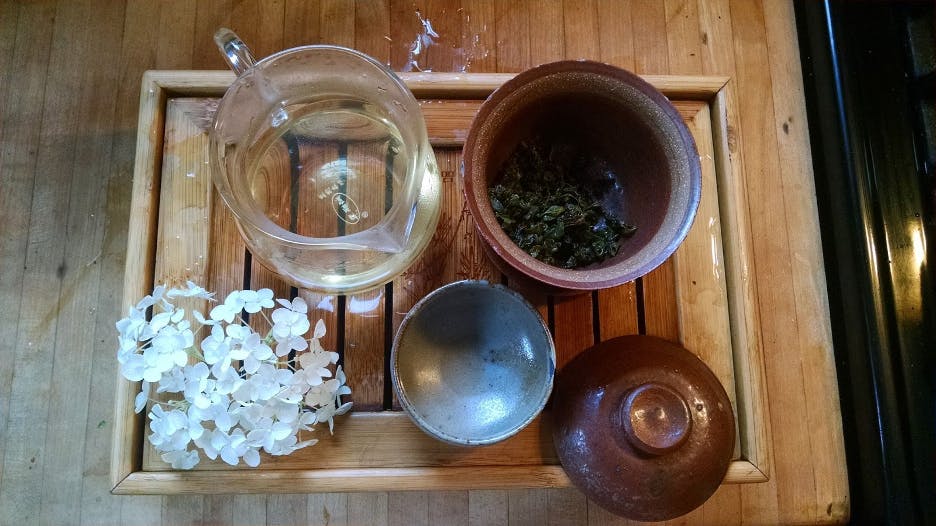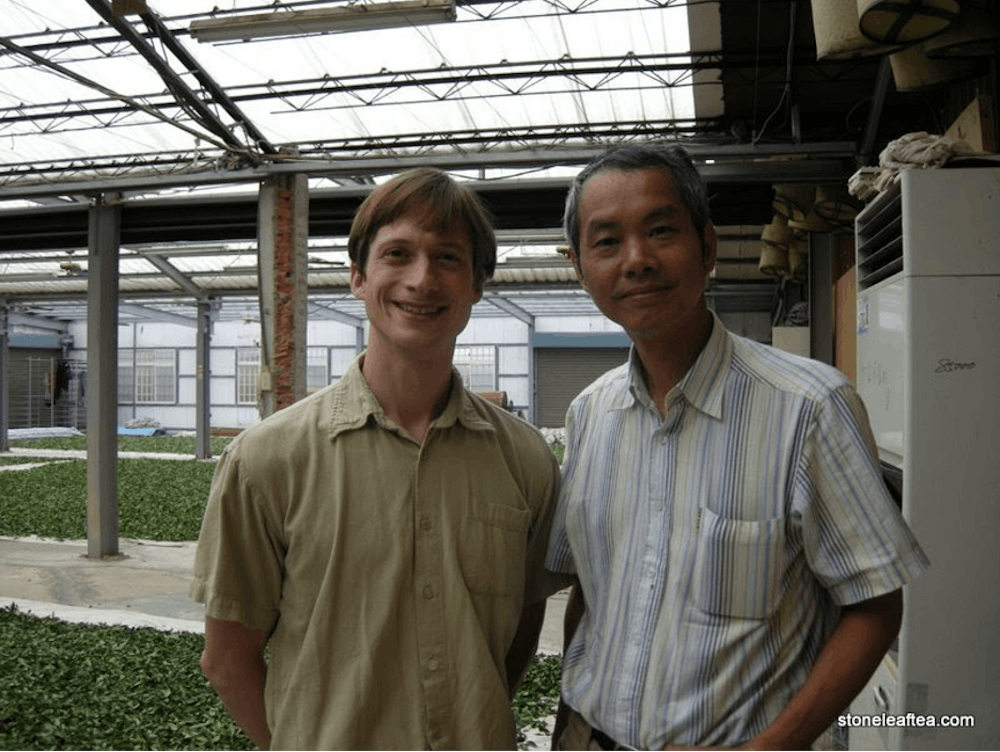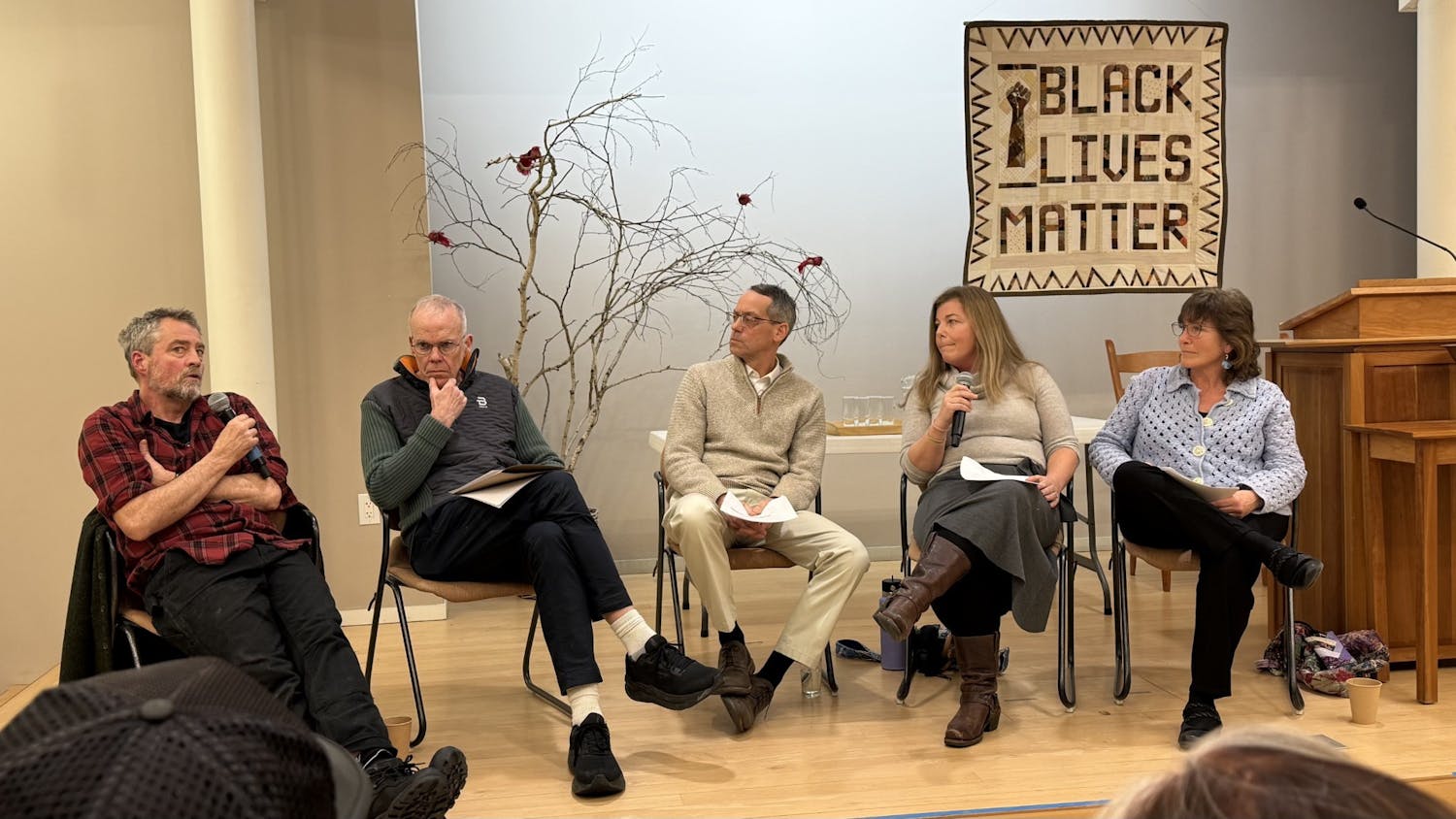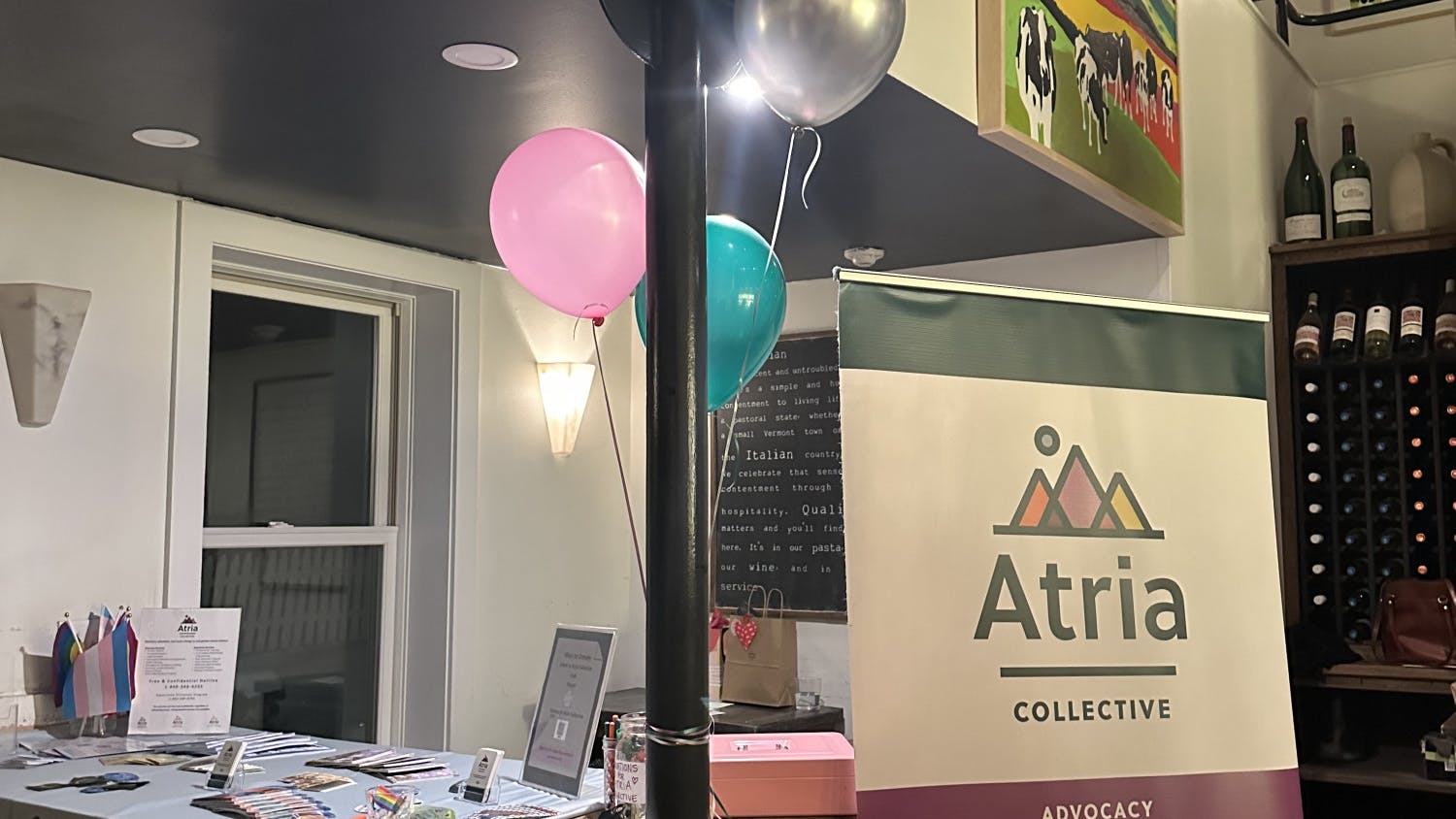Tucked away in the folding alleyways and courtyards behind Middlebury’s Main Street is the unassuming Stone Leaf Teahouse, a building with a simple interior of stone and timbre and shelves of teaware. After a 17-hour flight and a three-hour drive that took me away from Asia to the foliage-covered mountains of Vermont, I did not expect to find a piece of home here.
“I never really thought the teahouse would be in Middlebury,” said John Wetzel, the owner of the teahouse. “I’ve always thought it would have to be in a bigger town to sustain it.”
However, the support from the community was so great that Wetzel decided to undertake the venture in 2009 after finding an ideal space in the Marble Works District. Between his trips to import tea from Asia and serve it to the Middlebury community, Wetzel found meaning in facilitating the cultural thread between the growers and the drinkers.

Travel
Studying and importing tea has brought Wetzel to tea farms across Asia, including those in India, Nepal, China, Taiwan and Japan. Driven by his goal to trade with local, family-owned tea farms, Wetzel visited many rural villages. His first trip was in 2006, when he traveled across Vietnam alone, save for one contact in Saigon.
Wetzel graduated from Washington College, a liberal arts college in Chestertown, Md., with a major in environmental studies. He had a multifaceted interest in culture, history, environment and agriculture.
Just like many other liberal arts students, Wetzel had no idea where his life was going to take him. However, he found a focal point for all his interests in tea. Yearning to learn more about tea and the culture that surrounds it, he headed eastward to its roots.
“It was before you can book everything online,” he said, chuckling as he recalled his first trip. “You take a train or bus into a town, and you just have to make your best guess to find a place to stay.”
Before he started to study Chinese this year, Wetzel had no knowledge of the local languages in the villages and cities he visited. Insisting on not following tourist norms and attracted by the adventurous aspect of self-exploration, Wetzel never hired a translator. Surprisingly, he was able to build connections as a result of his language barrier. Wetzel explained that since the younger generation in the rural areas had just started to learn English in school, they were happy to practice with him and serve as translators for their older relatives.
“Nevertheless, as a white person and a businessman, it can be a challenge to break down the stereotypes of American businessmen and tourists,” he said. Aware of his position, Wetzel emphasized the importance of respecting the local culture, as well as consciously avoiding cultural exploitation and appropriation.

Despite the language barriers and cultural differences, his encounters with locals have been largely positive. “People are very welcoming. Even if I [ended] up in a village where no one speaks English, they still took me in, shared meals and tea, and communicated whatever we could,” he said.
“Ten years ago, I would get the impression that I was the only white person people [had] ever seen,” Wetzel said. However, today, the situation has changed drastically, as even the rural areas of Asia have been impacted by the rapid wave of urbanization and globalization that metamorphosized its metropolitan areas such as Shanghai, Tokyo and Hong Kong.
The beauty of the people and the environment he encountered during his travels became one of the most meaningful facets of his work.
Humbly calling himself “a student of tea” despite more than a decade of specialization, Wetzel relished the diversity of tea in the different areas of Asia. “I don’t have a single teacher in chadao (the way of tea). Everywhere I go, all these people I meet, they are all my teachers,” he said.
Connecting
By conversing with locals and visiting tea farms across Asia, Wetzel was able to gradually build up substantial connections throughout the continent. He credits this to the social nature of tea-drinking culture. In Asia, many families greet guests and friends by serving tea. Casual social gatherings and friendly reunions are often done over afternoon teas.
“The nature of drinking tea is talking with people,” he said. “On my trips, I want to try and make those connections more than just business transactions. Going to buy tea, you have to sit down and talk to people about themselves: what they are going through, things in their lives, and so on.”
Maintaining the connections he built up over the last 14 years has become an important part of his life. Wetzel reached a point at which the purpose of his travels shifted from purely adventuring into new places to revisiting and rebuilding existing connections.
“I am actually not a natural traveler,” Wetzel admits. “There is a part of me that prefers to just stay local, especially with the ecological consequences of flying.” It is also difficult for him to be away from his family, with whom he cherishes spending time. However, adamant on the importance of maintaining these cross-continental connections through tea, and passionate about sharing the tea culture with more people in America, Wetzel’s love for tea and culture brings him time and time again back to Asia.
He believes that the teahouse finishes the circle of connection by providing a space for serving tea. The teahouse always pours the first cup of tea for its visitors — a purposeful act of offering in tea ceremonies.

Unfortunately, because of safety precautions related to the pandemic, Stone Leaf currently only offers pickup and deliveries. This has drastically changed the nature of the business — and Wetzel’s new goal is to educate more people about how to enjoy loose leaf tea at home, whether it’s simply adding hot water or making a good pot of Kung Fu Tea.
When asked about the reason behind his specific interest in tea, Wetzel highlighted the contemplative nature of tea-drinking that is generally not seen in the coffee house culture. While he definitely appreciates and enjoys coffee, the meditative aspect of tea ceremonies appeals to him on a deeper and more personal level.
“Often, people who are conversing stop and watch the flowing of the water as we pour the tea for them. There is this brief moment of silence,” Wetzel said. The act of drinking and making tea, according to Wetzel, is very much about being mindful and present, as well as being aware of the little details in our lives that have so much potential to bring joy yet are so often habitually neglected.

Florence Wu '22 is the multimedia editor specializing in photojournalism. She enjoys photography as a way of connecting with others, as well as recording special events and moments in her personal life. She is inspired by the works of Robert Frank, Joel Sternfeld, Alec Soth, Teju Cole, and Gregory Halpern. This year, she will be working on a photojournalism project on the lives of workers at the college and town of Middlebury. Feel free to contact her via email for photo, video or podcast ideas.




